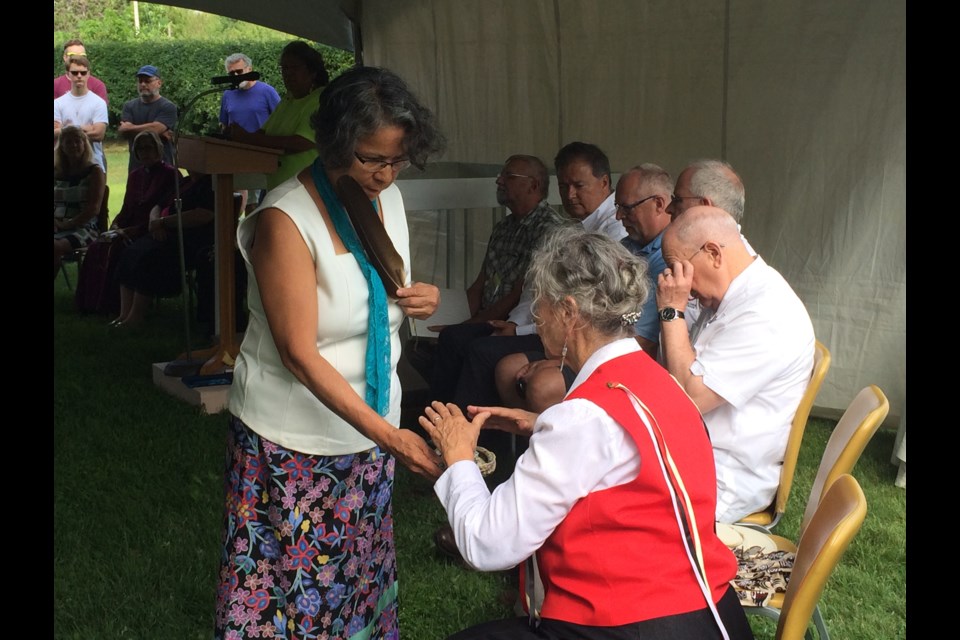Fifty years ago, a group of Jesuits paddled 850 kilometres, following a traditional First Nations canoe trade route, stretching from Midland to Montreal, as part of Canada's Centennial. This summer, a core group of 30 paddlers from across the country are retracing that same route.
Canadian Canoe Pilgrimage, is comprised of Indigenous, Jesuit, English and French Canadian paddlers, who took on the month long canoe trip in response to the Calls to Action of the Truth and Reconciliation Commission.
It is their way of building strong relationships while fostering a better understanding of each other's culture and traditions as Indigenous and non-Indigenous people.
Project manager, Erik Sorensen says in order to make change happen, people have to care.
"And if people are going to care, they have to have some form of personal connection, If you have no personal connection with an Indigenous community, you don't have that same kind of movement to advocate for change," he said.
"But if you have that personal connection, all of a sudden you become a stronger advocate, and you can start speaking up, advocating for change at different government levels within your community."
The pilgrimage raises awareness about the need for reconciliation during stops at communities along the route.
A celebration in their honour was held on the grounds of the Sisters of St. Joseph Motherhouse in North Bay, Monday. People from all backgrounds and walks of life gathered to discuss the need for change.
Dr. Michael DeGagne, Chair of Reconciliation North Bay points out the key to making change happen is opening up dialogue and taking the time to listen.
"The more we can talk about reconciliation, the more we can talk about First Nations, Metis and Inuit people working together with the rest of Canada. I think that's where we are now. Our Mayor, of course, has issued a proclamation this year, for the Year of Reconciliation which we appreciate. These paddlers are a really powerful symbol of reconciliation," said DeGagne.
"The idea that it is the quintessential First Nations, Metis mode of transportation, the canoe, being paddled by this group associated with the Jesuits, I think it is the perfect way to do something positive and to take some concrete action towards reconciliation."
Former Chief of the Nipissing First Nation, Marianna Couchie, agrees that it is a positive step in moving forward.
"Today is a good day. It's important to have these types of gatherings because with each gathering, more and more is shared and then people come to understand what our history has been, with the colonial settlers."
Sister Bonnie MacLellan, General Superior of the Sisters of St. Joseph of Sault Ste. Marie, says this is a 'significant moment in history'.
"A pilgrimage is a journey on land and this pilgrimage is a journey of the heart, a journey of openness, of reconciliation, of developing right and new relationships as we move forward as partners. Not as one nation over another, but in true partnership."
Paul Jacques is both paddler and navigator on the pilgrimage. The Sault Ste. Marie resident is affiliated with the Michipicoten First Nation in Wawa.
"It started out as a personal journey, definitely somewhat spiritual. I've had dialogue with many other people with their different opinions and views on stuff. I feel I've learned a lot and grown as a person."
The trip was funded by the Ontario 150. At the end of the journey, a report will be submitted to the provincial government. Information collected during the trip will become resource material for other groups involved in similar activities in the future.



